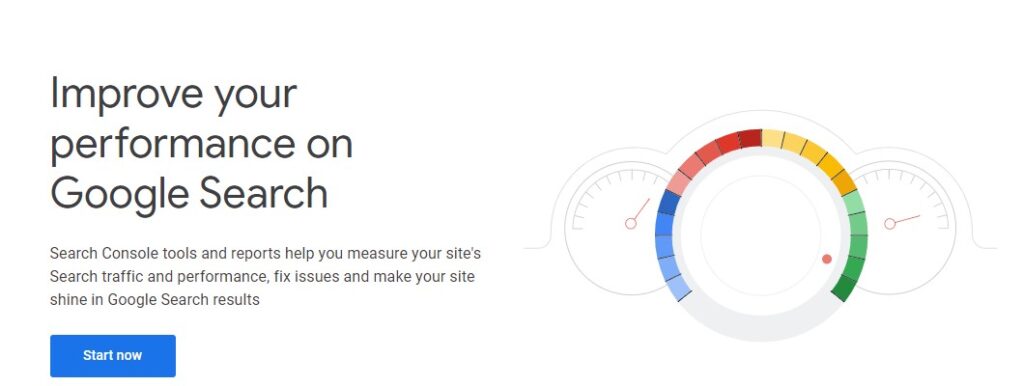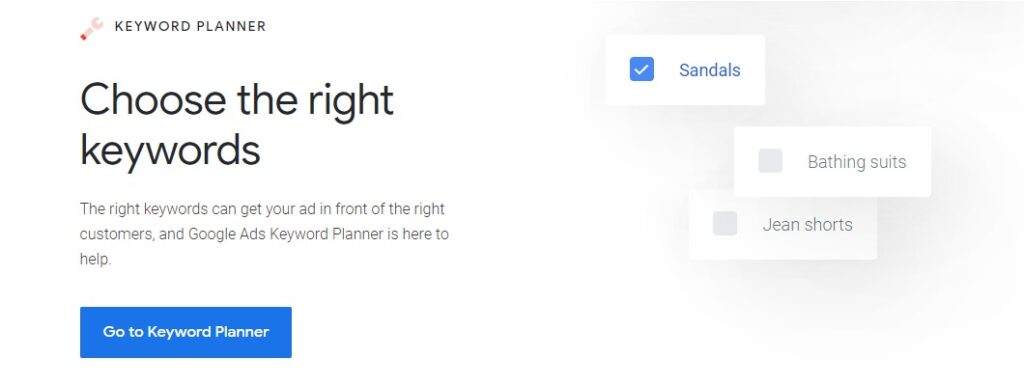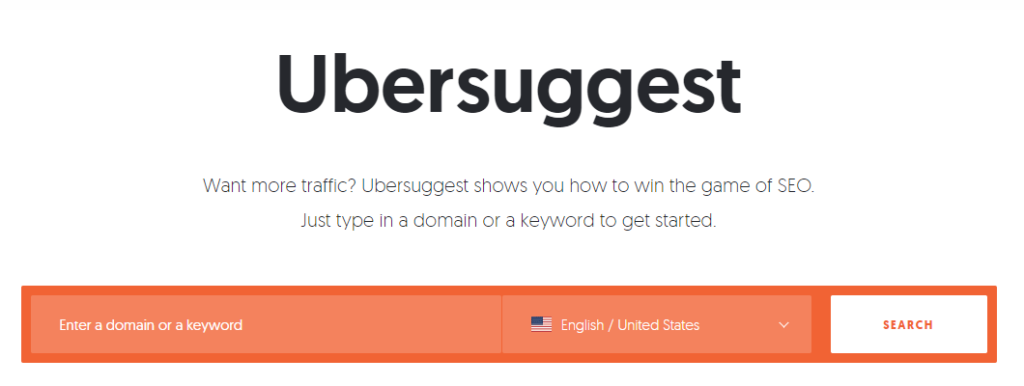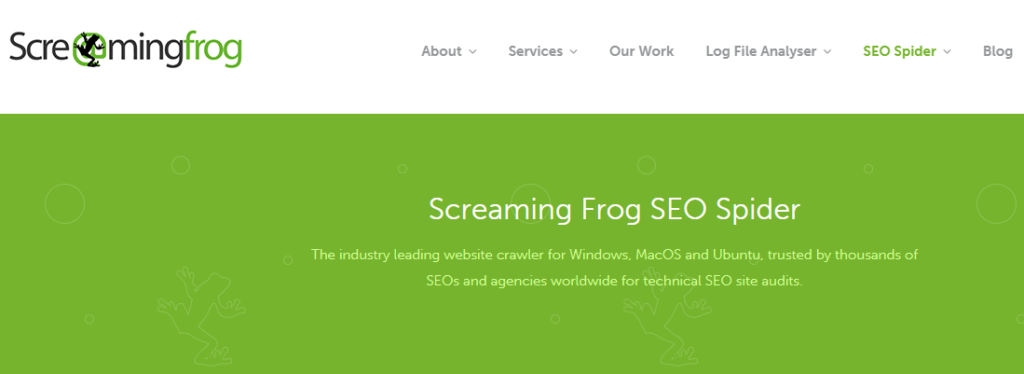You might have wondered how Google selects the top results from thousands, sometimes millions, of webpages available on the Web. What brings competitors in the top 10, and why you lagged behind them. It’s quite possible, you know SEO or Search Engine Optimization, but it’s hard to focus on all the parameters essential for Google Ranking.
Beginners or experienced – for both it’s important to do the right things at the right time. Google has improved its search engine, and it’s consistently working hard to help users find the most relevant information, product or service, and so should you.
Here is a round-up of the best SEO tools that can help you keep your digital marketing at pace with the Google’s Updates and rank higher in SERP.
1. Google’s Search Console

Who can tell better than Google that what users are looking for on Google? Obviously, Google Search Console is the comprehensive SEO tool for webmasters, SEO experts, and business heads, and it’s FREE. It tells not just about the clicks, impressions, and CTR but also monitors the performance of a site on mobile and desktop. If you get some great website developers who can implement the technical SEO things appropriately nothing can stop you from reaching your goals.
2. Google’s Keywords Planner

This is the FREE go-to SEO tool for everyone and supports your marketing strategy from start to end. Google’s Keywords Planner pulls outs custom results as how searches are performed by demographics and technology (device, browser, operating system). It also tracks how your SEO and PPC strategy are working. Create goals to track user engagement and conversion at different points of their journey.
3. SEMRush

You do not need to be an SEO professional to get website SEO ranking and traffic for keywords relevant to your business. With the SEMRush SEO tool, you can have a complete report on traffic, keyword ranking, backlinks, and change in keyword ranking on desktop and mobile both. To know the health of your website, simply click on the SEO Audit tool. It explains to you about the SEO errors. It also has tools like SEO writing assistant that can help you have engaging content.
4. Ubersuggest

Ubersuggest by Neil Patel helps you with Rank Tracking, Site Audit, Keyword Research, Competitive Analysis, and Backlinks Tracking. It’s interface is quite easy, and is one of the cheapest SEO tools available in the market. Beginners find its training and support video and FAQs tutorials helpful in shaping their SEO strategy. Ubersuggest has three plans targeting Individual ($12/month), Enterprise ($20/month) and Agency ($40/month)
5. Small SEO Tools

Actually, it’s a bundle SEO tool that helps with content, design, user engagement, marketing, and tracking. Perform all like a pro. Small SEO Tools have Plagiarism Checker, Grammar Check, Reverse Image Search, Logo Maker, What is My IP, PDF To Word Converter, Internet Speed, TestSEO checker, and so on.
Most of the features of this tool are available for FREE. However, for paid marketers, it has a paid version of the keyword research tool to provide more accurate keywords for running an effective PPC campaign.
6. Screaming Frog

No list of SEO tools can be complete without the mention of Screaming Frog. Its free version comprises features like Find Broken Links, Errors & Redirects, Analyse Page Titles & Meta Data, Review Meta Robots & Directives, Audit hreflang Attributes, Discover Exact Duplicate Pages, Generate XML Sitemaps and Site Visualisations. For additional SEO analysis and monitoring features, you need to spend $191.23Per Year.
7. Moz

Moz is among the most popular and oldest SEO tool that simplifies digital marketing for individuals and businesses both. Keyword Explorer, Link Explorer, Authority Scores, Spam Score, and Page Overlay are some of the key SEO analysis features.
8. SEOlyzer

SEOlyzer monitors your SEO KPIs in real-time unlike other tools where you get to know about errors after thee to four days when the damage has been done. It helps marketers to respond immediately to a problem. It has free as well as paid versions for starters, experienced professionals, businesses and enterprises.
SEO Tools FAQs
Q. What are SEO tools, and why do I need them?
A. SEO tools are software programs designed to help analyze, track, and optimize various aspects of a website’s SEO, including keyword rankings, backlinks, site speed, and content. They’re essential for improving search engine rankings and visibility.
Q. What is the difference between free and paid SEO tools?
A. Free SEO tools provide basic features like keyword research or analytics with limited data. Paid tools offer advanced capabilities, in-depth data analysis, and detailed reporting, making them suitable for comprehensive SEO strategies.
Q. Which SEO tools are best for keyword research?
A. Popular tools for keyword research include Google Keyword Planner, Ahrefs, SEMrush, and Moz. These tools provide insights into search volume, keyword difficulty, and related keywords.
Q. How do backlink analysis tools work?
A. Backlink analysis tools like Ahrefs, Majestic, and Moz track backlinks to your site and your competitors, providing insights into the quality and quantity of links, which helps improve link-building strategies.
Q. What are the best tools for site audit and technical SEO?
A. Tools like Screaming Frog, Ahrefs, SEMrush, and Google Search Console are effective for technical SEO, helping identify issues like broken links, crawl errors, duplicate content, and site speed issues.
Q. What are the benefits of using Google Analytics for SEO?
A. Google Analytics tracks user behavior, traffic sources, and conversions. It provides insights into which pages perform well, helping refine SEO strategies based on actual user engagement.
Q. How can Google Search Console help with SEO?
A. Google Search Console shows how Google views your website, offering insights into indexing status, search performance, and potential technical issues, making it essential for troubleshooting SEO problems.
Q. What tools help improve on-page SEO?
A. Tools like Yoast SEO, Rank Math, and Surfer SEO offer on-page optimization insights, helping with keyword placement, content structure, and readability to improve user experience and SEO.
Q. Can I use SEO tools to optimize for mobile?
A. Yes, tools like Google Mobile-Friendly Test, PageSpeed Insights, and Ahrefs allow you to assess mobile performance, helping improve mobile user experience and SEO.
Q. What tools are best for tracking keyword rankings?
A. Ahrefs, SEMrush, and SERPWatcher provide keyword tracking features, allowing you to monitor keyword positions and fluctuations over time for targeted SEO strategies.
Q. How do SEO tools help with competitor analysis?
A. Competitor analysis tools like Ahrefs, SEMrush, and SpyFu reveal competitor keywords, backlinks, and traffic sources, helping you identify opportunities and improve your SEO strategy.
Q. How does a content optimization tool work?
A. Content optimization tools like Surfer SEO and Clearscope analyze top-performing pages for specific keywords, suggesting ways to optimize content based on data like keyword frequency and readability.
Q. Are there SEO tools specifically for e-commerce?
A. Yes, platforms like Ahrefs and SEMrush offer specific insights for e-commerce SEO, and specialized tools like WooRank and Ahrefs can help optimize product listings, reviews, and page structure.
Q. How can SEO tools improve local SEO?
A. Tools like Moz Local, BrightLocal, and Yext help manage business listings, track local keyword rankings, and optimize for local search, enhancing visibility in local searches.
Q. What are the best free SEO tools?
A. Some effective free SEO tools include Google Analytics, Google Search Console, Ubersuggest, and Yoast SEO, each providing valuable insights and optimizations at no cost.
Q. Can SEO tools help me improve page speed?
A. Yes, tools like Google PageSpeed Insights, GTmetrix, and Pingdom measure page load times and provide suggestions for improving site speed, which is critical for SEO.
Q. What is an all-in-one SEO tool, and which are the best?
A. All-in-one SEO tools combine keyword research, backlink tracking, site audits, and ranking data. Popular options include Ahrefs, SEMrush, and Moz, offering comprehensive SEO insights in one platform.
Q. How accurate are keyword search volumes from SEO tools?
A. Keyword search volumes are estimates based on data sampling, so they may not be exact. However, they give useful trends and relative values for guiding keyword strategies.
Q. Can SEO tools help me optimize for voice search?
A. Tools like AnswerThePublic and SEMrush identify long-tail keywords and natural language queries, aiding in optimizing content for voice search, which typically involves question-based queries.
Q. How often should I use SEO tools to monitor my site?
A. Regular monitoring is ideal—weekly for rankings and traffic and monthly for site audits. This helps you keep up with changes, track improvements, and address issues promptly.
